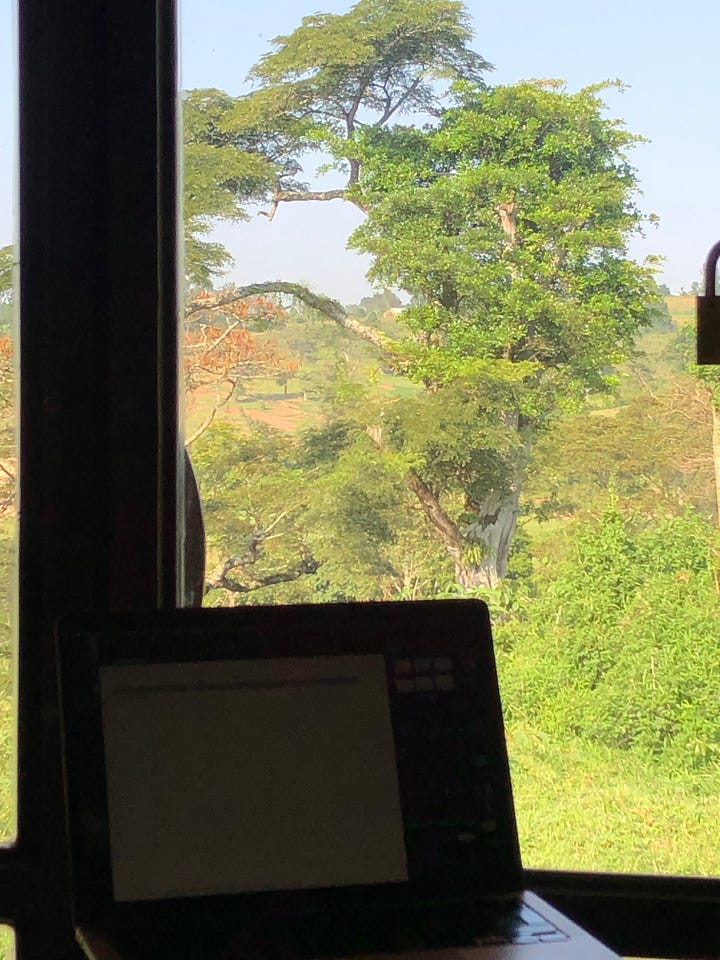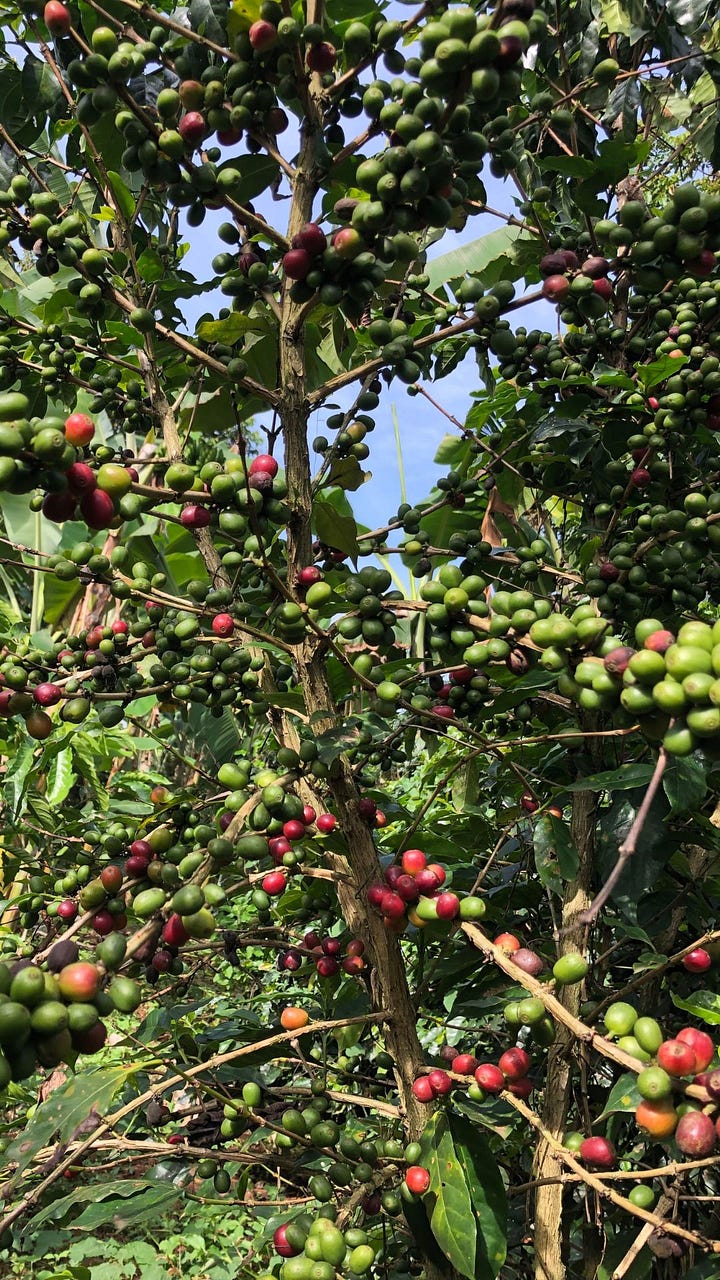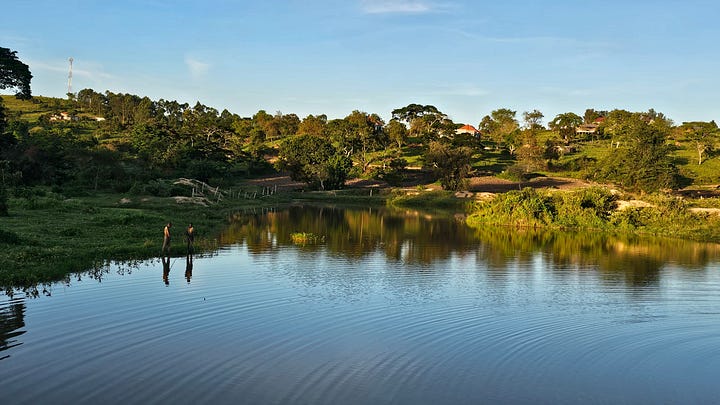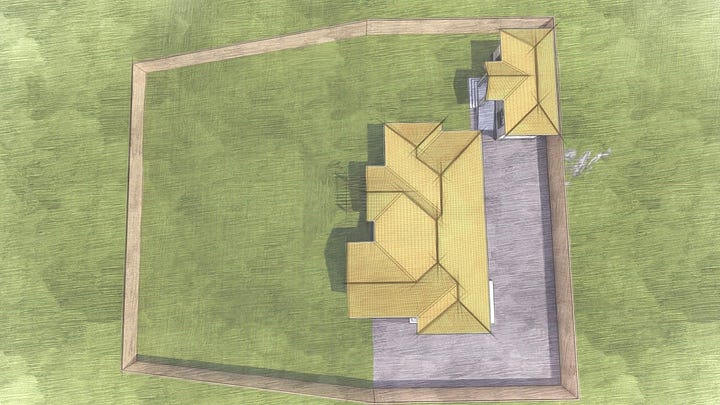I park at the front of the building just outside the reception area. I mention the architect’s name and I am directed to the back. There, I am instructed to take a flight of stairs up to the second floor. At the landing, I call him again and I hear a phone ringing from the corner of the floor that I am on. He waves me over and I walk through what appears to be a recently vacated office floor. There is computer equipment both in whole and disjointed parts. Paper folders lie on table tops, some with documents peeping out of them. He explains to me that he does some work for the owners of the building. They have allowed him to use the space at a greatly reduced rate. He has a home office, he says. It is why he is not too bothered by the abandoned office nature of his surroundings.
James and I are meeting to plan a self build. I know James because growing up, our fathers worked with the same organisation. As an architect, his side hustle is taking on jobs like mine. Jobs too small for his employer to bother with but not too complex to distract him too much.
With Uganda having one of the highest rates of new businesses starting up in the world1, Kampala is the city of side hustles. James’s new clients come in via personal referrals. People being more likely to trust referrals a lot more than they will rely on CVs and claims of experience that are not worth the paper on which they are printed- The city’s printing and publishing streets are infamous for doing brisk business in printing fake academic transcripts.
The visit will satisfy me and the imaginary future auditors of my every decision, that I carried out all due diligence. After all, some phone calls and emails would have sufficed. In Kampala, it is understood that a physical out-of-home office address is a major sign of seriousness in business. So, I am also in this Kampala suburb, Kabalagala2, to confirm that he indeed, has an office.
There’s a British programme, Grand Designs that follows different people’s experiences doing self builds. Watching it one day, I realised this is interesting to them because in Britain, self-builds are unusual. In Uganda, most people that I know that own houses have had them built themselves, from scratch.
Ready houses are perceived as being more expensive. Also, few people qualify for mortgages. Enter the side hustle: a side hustle that turns up some revenue can slowly fund a self build whilst the regular income goes to regular bills. The dreamy-eyed expectation being that whether it will take decades, as long as bricks and sand trips are steadily purchased instead of money being spent on pretty much anything else, a house will emerge.
So, nothing interesting about doing a self build. What is interesting is why I’m locating it 150kms out of the capital city…
Ben squats in one of the many flower gardens at the farm. I watch as he, for what seems to be the hundredth time, pulls out his phone to scan a leaf. I think that he is slightly obsessed with this app that he recently discovered. He says it is useful for finding out things about the flowers.
The joke around is that what would take another person a few hours to do takes Ben the whole day. But everyone appreciates the attention he pays to these blossoming gardens of various flower species all round the farm.
The flowers are not the only thing that thrives in this place. Musizi (umbrella) trees are dotted all over the place. Other tall, tall tree species that I do not know the names of. I know that I thrive here too. My best ‘brain’ work happens here. The views are spectacular. There’s a valley dam that tempers the worst of the dry season and romanticises the valley as only a water body can.




A church group is visiting the farm this morning. I find a route that will avoid their tour. I am not familiar with this path and it makes for an adventurous walk. As I wind my way back to the cottages, I come across tall trees of overgrown coffee. I know that the previous owner of the land was a cattle herder so this coffee is even older than his time here. My suspicion is that it is part of the 1970s and 80s coffee legacy of the area. The coffee that many in Uganda tell stories of having been ‘educated on’. Back in the glory days before 1989 when countries (including the USA, significantly) backed out of the International Coffee Agreement leading to a 40% collapse in world coffee prices. Back when quotas meant that coffee farmers in West, Central and Eastern Uganda took their revenues for granted; money that guaranteed their children’s school fees among other things. My father also shares the ‘I-was-educated-on-coffee’ story. His is from even further back; the 1960s. It is perhaps this story that he will relive as he has planted new coffee trees. - “Now that we have a coffee expert in the family.”
A crazy thought has made rounds in my head. How about if I spent several long weeks at the farm each year? This place of acres and acres of green. How about if I seriously considered the idea of taking over managing the new coffee plantation? The one that is going up. The one that will re-enact the family’s coffee past. In this country of cheap labour, hiring workers seems like a perfect way to side hustle one’s way through life. But, farming can not be a side hustle, everyone says. You must commit to it. And does anything shout commitment as loudly as actually living in a place?
Perhaps I shall add a granny annexe to the house plan? And run a BnB side hustle. The farm is situated not too far off a major road that leads to some major national park action. And also along the route of a new (controversial) oil pipeline. The idea of receiving guests appeals. Even now, I see them. Flocking in from all ends of the earth. Driving first through the B towns that lead out of Kampala; Busega, Bulenga, Buloba, Bulaga, Bujjuko. Bringing to me conversation of their interesting experiences in life and in the world.
I know also that it is only the very rich that can afford to comfortably live and work outside cities. The mind goes to the president’s brother, who for years has been hidden away in a town 300Kms from the capital city. He heads up an important programme of government charged with ‘facilitating national socio-economic transformation by transforming subsistence farmers into commercial farmers’. As head of the dramatically named Operation Wealth Creation (OWC), he is required to make vital decisions. But if you want to meet him, you will drive 300kms from the capital and find him up North. Not so those of us that must rely on the capital city for sustenance. With all the best jobs, customers, the better schools, and networks concentrated there.
Shall I dare? Shall I say to hell with all that makes sense and figure out a way to make this work? For the moment, the land is graded, and awaits the digging of trenches in which the foundation will be laid.
The suburb shares a name with a popular Kampala snack; kabalagala. A sort of pancake made with a small very sweet banana variety. The dough is made with cassava flour. And a raising agent. Then deep fried. I grew up near Kabalagala and always enjoyed the fact that it is called the name of a snack. I once made kabalagala for sale as a side hustle. Incidentally, the snack pairs well with black sugarless coffee.




If you open a BnB, can I be a customer?! Your posts make me want to visit Uganda 😀
I loved reading about this. I need a new side hustle myself!